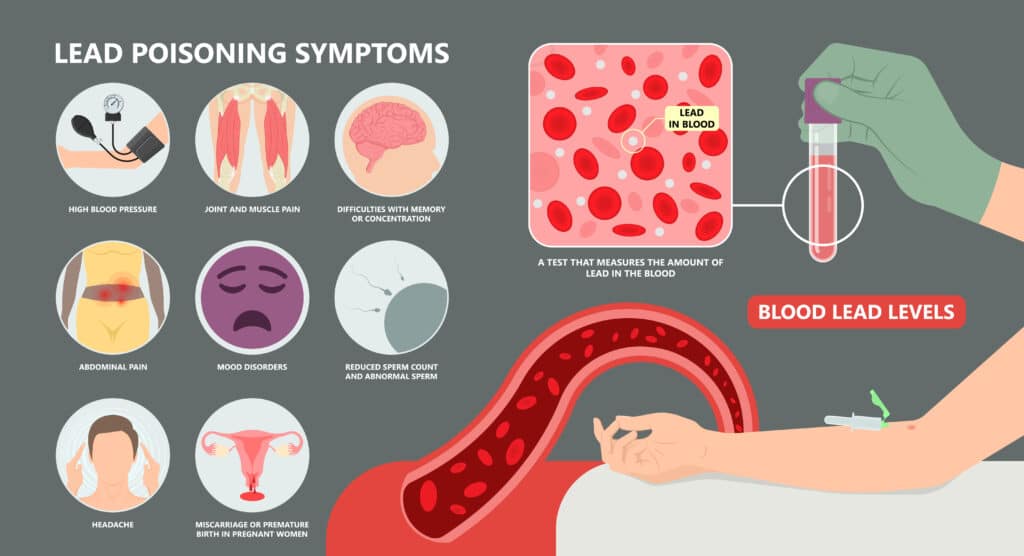Eliminate heavy metals from the body or effectively enhance the effects of chemotherapy and radiotherapy
Understand heavy metals and its impact on health
Heavy metals such as lead and mercury , cadmium and arsenic are toxic elements that can accumulate in the body over time. These metals are present in our environment——Found in food, water, air and industrial products——and can enter the body through ingestion, inhalation, or absorption through the skin.
Once inside the body, heavy metals will bind to proteins and enzymes and interfere with normal cell functions. These metals are known:
• • Induced oxidative stress: Heavy metals can generate free radicals, causing oxidative stress, which can damage cells and DNA.
• Suppress the immune system: By weakening the immune response, heavy metals make it harder for the body to fight off disease, including cancer.
• Disrupt detoxification pathways: The liver and kidneys are critical for detoxifying the body, but heavy metal toxicity can impair their function.
• Cause chronic inflammation: Long-term exposure to heavy metals can lead to chronic inflammation, which is one of the known factors in the development of cancer.
Given these effects, it is not surprising that heavy metals are associated with the development and progression of many cancers.
Heavy metals in Role in cancer treatment resistance
One of the major challenges in cancer treatment is treatment resistance. Some tumors do not respond well to chemotherapy or radiation, and heavy metals may play a role in this resistance. Specifically:
• Reduce the effectiveness of chemotherapy : Chemotherapy works by damaging the DNA of rapidly dividing cancer cellsDNAwork. However, heavy metals like cadmium and arsenic may cause additionalDNADamage and mutations may make cancer cells more resistant to chemotherapy.
• Interference with radiotherapy: Radiation therapy causes severe DNAdamage to kill cancer cells. Heavy metals can exacerbate oxidative stress and make healthy cells more susceptible to radiation damage, which may limit the safety of radiation doses.
• Suppress immune function: An effective immune system is critical for identifying and destroying cancer cells. Heavy metals can suppress immune function and reduce the body’s ability to support chemotherapy and radiation therapy.
Given these challenges, reducing heavy metal levels in the body may be a valuable way to enhance the effectiveness of traditional cancer treatments strategy.
Heavy Metal Detox How to enhance cancer treatment
1. Reduce toxic load:
By removing heavy metals from the body, the overall toxic load can be reduced. This means the liver and kidneys, which are often stressed during cancer treatment, can function more efficiently. A more efficient detoxification system could more effectively eliminate chemotherapy drugs and their byproducts, reduce side effects, and potentially allow for higher, more effective treatment doses.
2. Improve immune function:
Chelation therapy is used to remove heavy metals and can help restore immune function. A stronger immune system is better able to support the body during cancer treatment, helping to identify and destroy cancer cells more effectively.
3. Reduce inflammation:
Heavy metals are known to cause chronic inflammation, which may promote the progression of cancer. By removing these metals, inflammation may be reduced, creating a more favorable environment for chemotherapy and radiation therapy to work.
4. Enhance cellular health :
Cells without the toxic effects of heavy metals are generally healthier and more resilient. This means they are better able to recover from the damage caused by chemotherapy and radiation, improving treatment outcomes.
5. Potentially fewer side effects:
Heavy metal detoxification has the potential to reduce the side effects associated with chemotherapy and radiation therapy. For example, by reducing oxidative stress, patients may experience less fatigue, nausea, and organ damage, making the overall treatment experience more tolerable.
Cancer patients Practical Considerations for Heavy Metal Detox
While the potential benefits of heavy metal detoxification are compelling, cancer patients should Caution:
• Consultation with medical providers: Any detox strategy should be discussed with a medical provider, especiallyExperienced clinicians,to ensure it is safe and appropriate for the patient’s specific condition.
• • Personalized treatment plan: Not all cancer patients benefit from heavy metal detoxification. Before undertaking chelation therapy or other detoxification strategies, it is important to assess personal heavy metal exposure and toxicity levels.
• • Integration with traditional healing: Heavy metal detoxification should be considered an adjunctive strategy rather than a replacement for traditional cancer treatments.
References:
1. International Journal of Environmental Research and Public Health. (n.d.). Heavy metal toxicity: Impact on cancer risk and progression. MDPI. Retrieved from https://www.mdpi.com/journal/ijerph
2. Alternative Therapies in Health and Medicine. (n.d.). Chelation therapy as an adjunct in cancer treatment. Retrieved from https://www.alternative-therapies.com
3. Free Radical Biology and Medicine. (n.d.). The role of oxidative stress in metal-induced carcinogenesis. Elsevier. Retrieved from https://www.journals.elsevier.com/free-radical-biology-and-medicine
4. Journal of Toxicology and Environmental Health. (n.d.). Immunotoxicity of heavy metals: Impact on cancer and autoimmune diseases. Taylor & Francis. Retrieved from https://www.tandfonline.com/toc/uteh20/current
5. Cancer Research and Treatment. (n.d.). Heavy metals, chronic inflammation, and cancer: A mechanistic perspective. Retrieved from https://www.e-crt.org/
6. Journal of Hepatology. (n.d.). Detoxification of heavy metals and its impact on liver function in cancer patients. Retrieved from https://www.journal-of-hepatology.eu/
7. Clinical Oncology. (n.d.). The potential role of chelation therapy in improving cancer treatment outcomes. Elsevier. Retrieved from https://www.clinicaloncologyonline.net/
8. Radiation Oncology Journal. (n.d.). The influence of heavy metal toxicity on radiation therapy efficacy. Retrieved from https://www.e-roj.org/
Medical Disclaimer:
The information provided in this article is for educational and reference purposes only and does not constitute medical advice , and should not be used as a substitute for professional medical diagnosis, treatment or advice. Always consult your physician or other qualified health professional with any questions you may have regarding your medical condition or medical problems. The content of this article is not intended to recommend any specific test, treatment, or medication and should not be considered such advice. If you develop symptoms or need medical assistance, please contact a medical professional promptly

